News
Audience members tell panellists street checks are unfair
African-Nova Scotians raise concern about racial profiling during street checks
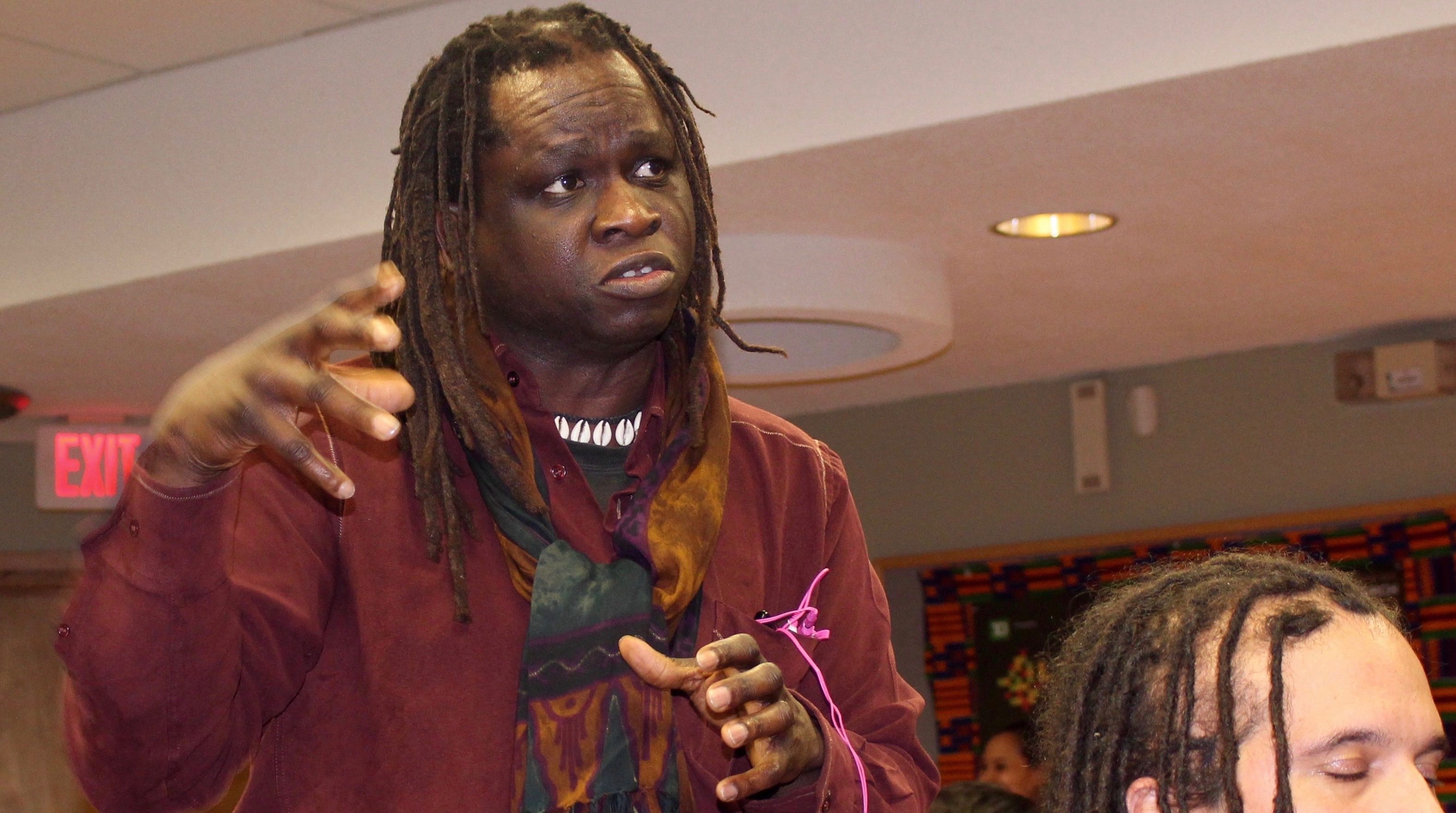
caption
Audience member Ifo Ikede raises concerns about street checks to Halifax Regional Police Chief Jean Michel Blais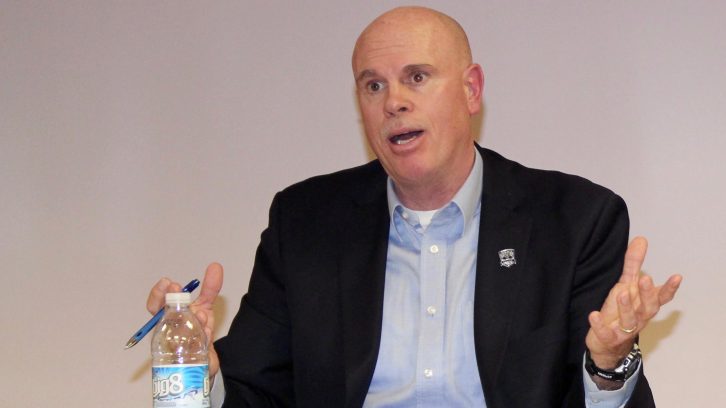
caption
Halifax Regional Police Chief Jean Michel Blais taking questions at the street check panel.Thursday night, a dozen audience members of the black community voiced their experiences with street checks. They believe that street checks result in the unfair treatment of African-Nova Scotians and over-policing in their communities.
The panel which was organized by Dalhousie Legal Aid was moderated by Archie Kaiser, a law professor at Dalhousie University. Questions he asked focused on people’s rights during street checks, the goals of street checks and how street checks affect a community.
The event took place at the Halifax North Memorial Public Library on Gottingen Street. It started at 6 p.m. and was suppose to finish at 8 p.m. but went more than half an hour longer due to the passionate discussion between audience members and panellists. Related stories
Most questions and concerns from the audience were directed to Halifax Regional Police Chief Jean-Michel Blais.
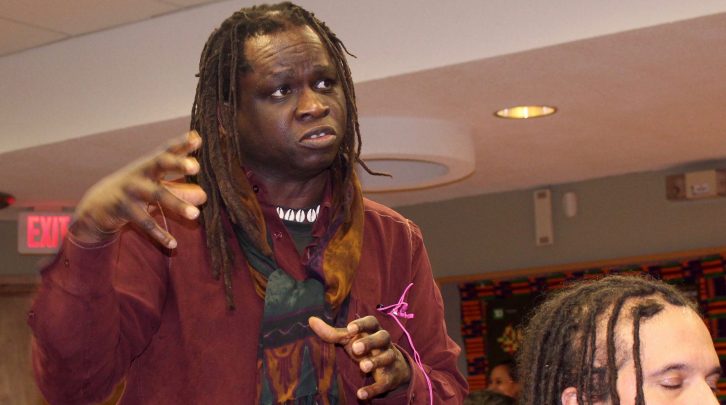
caption
Audience member Ifo Ikede raises concerns about street checks to Halifax Regional Police Chief Jean Michel Blais.During the question period, Ifo Ikede, an audience member, addressed Blais and said “I’m really offended by your comment of perception of racism when your own data shows that (African-Nova Scotians) are over-represented.”
Ikeda was referring to the data released by Halifax Regional Police on street checks requested by the CBC. It revealed that black people are three times more likely to be checked than white people in the municipality.
Blais defined street checks as an interaction between a person and an officer and a description of suspicious behaviour or person. This information is recorded as data entry into HRM’s police files.
He sees street checks as a mild police practice unlike other policing practices in other provinces or countries. “Street checks are not a stop and frisk, it’s not carding, it’s not the ticketing, detention or arrest of an individual,” said Blais.
Many audience members consider street checks unfair.
Marcus James shared his experience of being street checked to show that diversity training isn’t sufficient to prevent racial profiling. “I was closing this library, doing my job, when a police officer I had trained for diversity training street checked me.”
El Jones also used question period to confront the police officer about what he said. “I think it’s disrespectful to bring up the homicides in our community as a reason to street check people.”
One man in the crowd demanded that Blais resign if he couldn’t stop the unfair treatment of black people during street checks. Blais responded to this by asking “what would be an ideal percentage of black people being street checked? Zero per cent?”
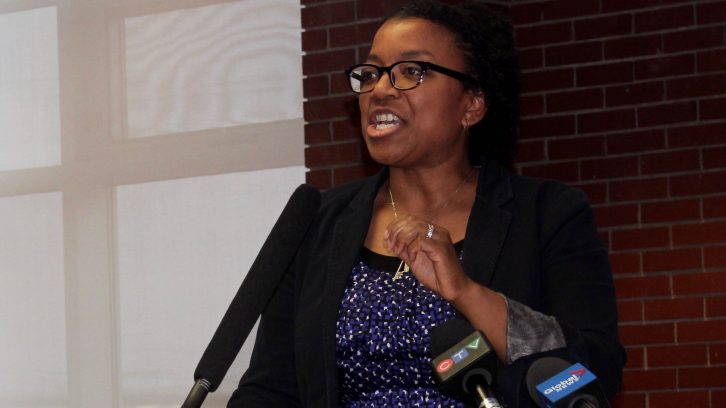
caption
Managing lawyer at NS Legal Aid, Rickcola Brinton, talking about peoples’ rights during street checks.Panel member and the managing lawyer at Nova Scotia Legal Aid, Rickcola Brinton, said with a joking tone she advises her clients “not to say anything” when a police officer wants to conduct a street check.
Brinton explained that depending on the situation, a person has to answer the questions the officer asks. For example, in the circumstance that someone is being detained, you must answer what the police officer is asking.
However, Brinton points out that people often don’t know that street checks don’t require people to answer questions asked by a police officer.
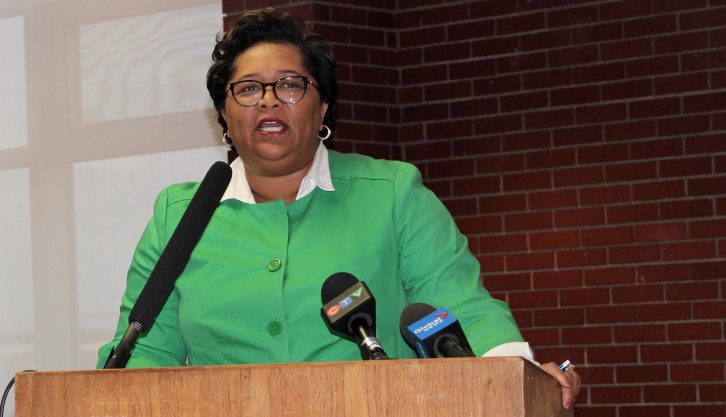
caption
Panellist Lana Maclean speaking to audience members about street checks at Halifax North Memorial Library.Panellist Lana MacLean, a social worker and social justice chair of the African United Baptist Association, (AUBA) explained that street checks have a damaging psychological effects on black youth. She said street checks criminalize black youth and creates trauma and distrust of police officers from an early age.
“When you are eight on a bicycle, a police officer has a tremendous amount of authority over you,” she said. “Your mother or your father have already had ‘the talk’ … you are at a higher risk than a white child to get stopped. That has happened to my nephew, riding his bicycle down North Street going home from Oxford School. That shifted something in him.”
Since the numbers came out, Sylvia Parris, the only African-Nova Scotian on the police commission board, questioned if street checks should be suspended until it’s shown that the higher percentage of black people being checked isn’t due to racial profiling.
Fellow commissioners Deputy Chief Bill Moore and Deputy Mayor Steve Craig disagreed with Parris.
Moore said in a meeting following the HRM’s press release that there needs to be more evidence regarding racial profiling. Craig worries that by stopping checks the police force would not be proactive in preventing crime.
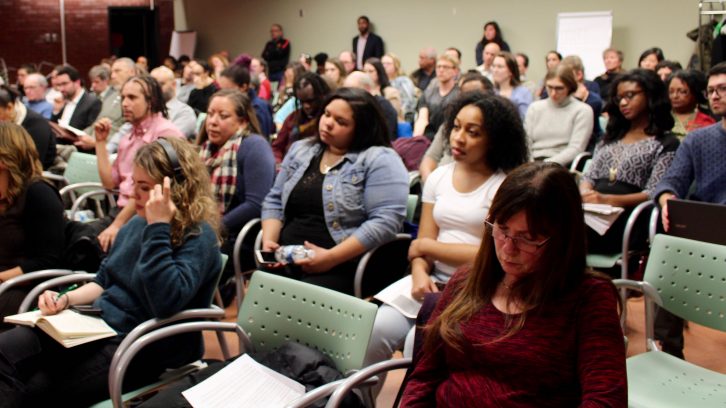
caption
Audience members at the street check panel organized by Dal Legal Aid.The panel ended with Brinton thanking Blais in front of the audience for participating in the discussion. “I don’t care what you [audience members] think, I’m glad he came.”

